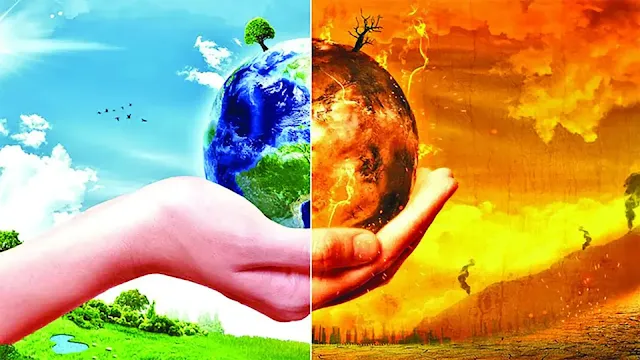Discover the vital importance of understanding climate change issues, its underlying problems, and why addressing this pressing global concern is crucial for a sustainable future. Explore why climate change is an important issue that requires immediate attention.
Why is climate change a pressing issue?
In the twenty-first century, one of the most important problems facing humanity is climate change. It cuts across national borders, racial and socioeconomic divides, and political allegiances, making it a truly global issue. The majority of scientists agree that climate change is occurring, that it is primarily caused by human activity, and that its effects have the potential to reshape our planet and have an impact on both current and future generations' well-being. We examine the causes Of climate change in this article to show why it is a serious problem that needs to be addressed right away.
There is no disputing the science:
Climate change is a recognized scientific fact; it is neither a hypothesis nor a merely theoretical idea. There is no disputing the fact that the Earth's climate is changing, as shown by an abundance of evidence from numerous scientific disciplines, such as meteorology, oceanography, and glaciology. Global temperatures have significantly risen as a result of the rise in greenhouse gas emissions, particularly those of carbon dioxide, methane, and nitrous oxide. Numerous pieces Of evidence, including changing weather patterns, melting ice caps, and rising sea levels, support the warming trend.
Significant Environmental Effects:
Everywhere in the world can already see the effects of climate change. Extreme weather events, such as hurricanes, droughts, and wildfires, have increased in frequency and intensity. These events result in fatalities, forced relocation of communities, and infrastructure damage. Increasing temperatures have caused glaciers and ice sheets to melt, causing sea levels to rise and endangering coastal areas. Ecosystems are being disturbed, which causes changes in animal habitats, extinctions of species, and disruptions in food chains.
Ramifications on society and economy:
Climate change has an impact on both developed and developing countries. The socioeconomic effects are significant and present difficulties for public health, water access, and food security. Changes in precipitation patterns can result in crop failures and decreased agricultural productivity, which exacerbates hunger and poverty. Furthermore, regions that already struggle with resource scarcity may experience increased competition and conflicts over water and other essential resources.
Health and wellbeing:
The health of people is directly impacted by climate change.
Heat-related illnesses and deaths can result from rising temperatures, especially in vulnerable populations like the elderly and young children. Public health issues are greatly exacerbated by evolving disease patterns, such as the spread of vector-borne illnesses like malaria and dengue fever. Respiratory problems and cardiovascular diseases may become worse as a result of poor air quality brought on by increased air pollution, which is frequently linked to the use of fossil fuels.
Loss of biodiversity:
Climate change poses a threat to the complex web of life on Earth. Numerous species are having a hard time adapting to environments that are changing quickly, which is causing ecosystem disruptions and possibly causing a mass extinction. Coral reefs, which are home to a wide variety of marine life, are especially susceptible to rising ocean temperatures and acidification. The decline in biodiversity not only lessens the wonder and beauty of the natural world, but it also has far-reaching effects on human welfare because ecosystems are crucial for things like pollination, water purification, and carbon sequestration.
Global Collaboration is Critical:
A global effort must be made in order to combat climate change. Collaboration between nations, sectors of industry, and individuals is necessary due to the issue's interconnectedness. International agreements like the Paris Agreement aim to reduce global warming and speed up the switch to renewable energy sources. to accomplish these objectives and lessen the effects Of climate change, more aggressive and quick actions are needed.
The urgent issue Of climate change requires our attention and immediate action. It is not some threat that will arise in the future. It is impossible to ignore the consequences for the planet and its inhabitants given the clear evidence, the impacts, and the impacts. We must make decisions that are environmentally friendly, cut greenhouse gas emissions, and support legislation that puts environmental protection first. We can work to build a more resilient and sustainable future for future generations by recognizing the urgency Of the situation and cooperating.

0 comments:
Post a Comment